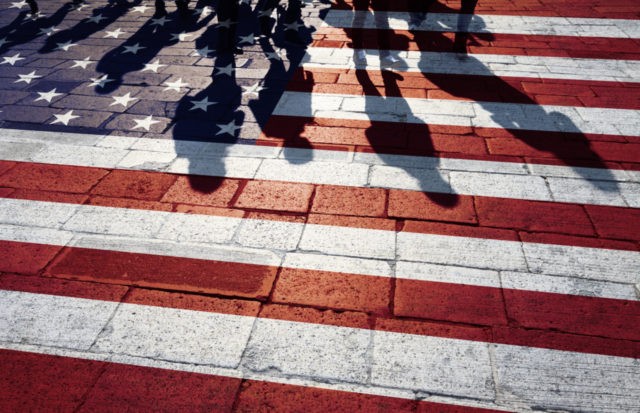President Donald Trump touted the wage gains for Americans in the lowest income brackets, adding that that the open borders policies of the Democratic Party threaten those gains.
“Since the election, real wages have gone up 3.2 percent for the median American worker,” Trump said in a speech Tuesday to the Economic Club of New York. “But for the bottom income group, real wages are soaring. A number that has never happened before. Nine percent.”
Wage gains for those near the bottom of America’s economic ladder have been particularly strong this year. The lowest-paid Americans saw weekly earnings rise by more than 5 percent in the second quarter from a year earlier, according to a quarterly survey of households produced by the Labor Department. Workers with less than a high-school diploma saw their wages grow nearly 6 percent.
“That may mean you make a couple of bucks less in your companies,” Trump said. “And you know what? That’s okay. This is a great thing for our country. When you talk about equality. This is a great thing for our country.”
The so-called “poverty gap”–which measures the heightened poverty rate among blacks and Hispanics compared to poverty overall–shrank to its lowest level on record last year. The racial gap in unemployment has also contracted as unemployment rates hit record lows this year. Black unemployment hit its lowest level on record in November.
Trump gave credit to the tight labor market for the improvement in wages and employment. But opening the countries borders to new workers from abroad would threaten those gains, he added.
By subscribing, you agree to our terms of use & privacy policy. You will receive email marketing messages from Breitbart News Network to the email you provide. You may unsubscribe at any time.
“Our tight labor market is helping them the most,” Trump said. “Yet the Democrats in Washington want to erase these gains through an extreme policy of open borders, flooding the labor market and driving down incomes for the poorest Americans. And driving crime through the roof.”
Economic studies have shown that when the supply of workers goes up, the price that companies have to pay to hire workers goes down.
“Wage trends over the past half-century suggest that a 10 percent increase in the number of workers with a particular set of skills probably lowers the wage of that group by at least 3 percent,” Harvard economist George Borjas has written. “But because a disproportionate percentage of immigrants have few skills, it is low-skilled American workers, including many blacks and Hispanics, who have suffered most from this wage dip.”

COMMENTS
Please let us know if you're having issues with commenting.